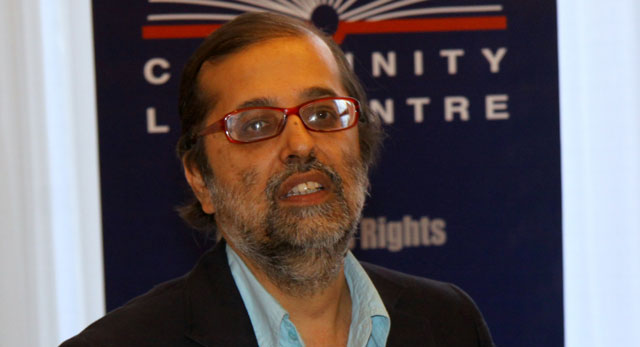
Legal action appears to be looming after a grouping of broadcasters and business organisations on Friday slammed cabinet’s recent decisions about migration to digital terrestrial television. This has raised the spectre of further damaging delays in South Africa’s already long-overdue migration to digital TV.
The SABC, MultiChoice, the Association of Community TV in South Africa, the National Association of Manufacturers in Electronics Components (Namec) and the Black Business Council, used a press conference to rip apart cabinet’s decision to mandate the use of a control system in the set-top boxes that government will subsidise for poorer South African households. The set-top boxes will be needed when South Africa moves to digital TV.
The aggrieved parties have intimated that unless government backs down on a decision to impose the control system that legal action will follow. They have claimed that communications minister Yunus Carrim acted in contravention of a high court judgment in recommending to cabinet that the control system be imposed. Earlier on Friday, Carrim defended the decision in an exclusive interview with TechCentral.
The battle, with e.tv and the South African Communications Forum on one side and MultiChoice, the SABC and Namec and the Black Business Council on the other, has been raging for more than a year. The warring parties are holding back migration, which in turn is undermining telecommunications operators that urgently need access to spectrum that will be freed up through the process to offer next-generation wireless broadband services.
The press conference, attended by MultiChoice South Africa Group CEO Imtiaz Patel and SABC acting chief operating officer Hlaudi Motsoeneng demonstrated clearly that the two broadcasters are not prepared to back down from their position following the recent cabinet meeting and want government to reverse course or face a fresh court challenge.
In a prepared statement read out at the press conference, Motsoeneng said: “The SABC has a mandate to make its services available to all South African citizens, in line with universal access. Our services, both television and radio, have always been on a free-to-air basis and going forward this will also be the case for digital terrestrial television.”
He said that it is in the SABC’s interests that “any subscription set-top box is capable of also receiving the SABC free-to-air channels. In this case, any digital subscriber would not have to purchase an additional free-to-air set-top box in order to receive the SABC’s free-to-air digital channels.”

Motsoeneng that that if the SABC channels are encrypted through a control system that is “different to that of any subscription service”, then the digital set-top box will “not have the ability to receive the SABC channels”.
Having a set-top box with a control system will “put an extra burden on consumers as this would drive up the cost”.
He said the SABC is being “clear and sober” in its communication on the matter.
MultiChoice, meanwhile, said it “questions the legality” of government’s proposed amendments to the broadcasting digital migration policy.
“The published draft proposes that all set-top boxes must contain a control system, but that the use of the system will be optional,” the company said. “In the e.tv decision of September 2012, the high court stated clearly that the minister ‘has no power in law to prescribe or making binding decisions related to the set-top box control system’ and ‘does not have the power to prescribe to free-to-air broadcasters how they should manage set-top boxes.”
“No person is above the law and we hope the minister will ultimately act in accordance with the decision of the court, rather than inviting unnecessary litigation that will continue to delay the migration from analogue to digital,” said MultiChoice’s group head of stakeholder and regulatory affairs, Calvo Mawela.
Carrim said earlier on Friday in his interview with TechCentral that government “has not made a decision about the management of a control system” and has not referred at all to conditional access or encryption as a method of implementing set-top box control. (MultiChoice argues that it was agreed that set-top box control, encryption and conditional access were all the same concepts.)
“We are saying that broadcasters are free to decide whether they want to use control or not,” Carrim said. “There is no compulsion. So, I can’t see how we are going against the court order.”
The minister, who is expected to issue a statement later on Friday, said the aim of the control system is mainly to protect government’s investment in the subsidised set-top box market and the local electronics industry.
Read the full interview with Carrim. — (c) 2013 NewsCentral Media




